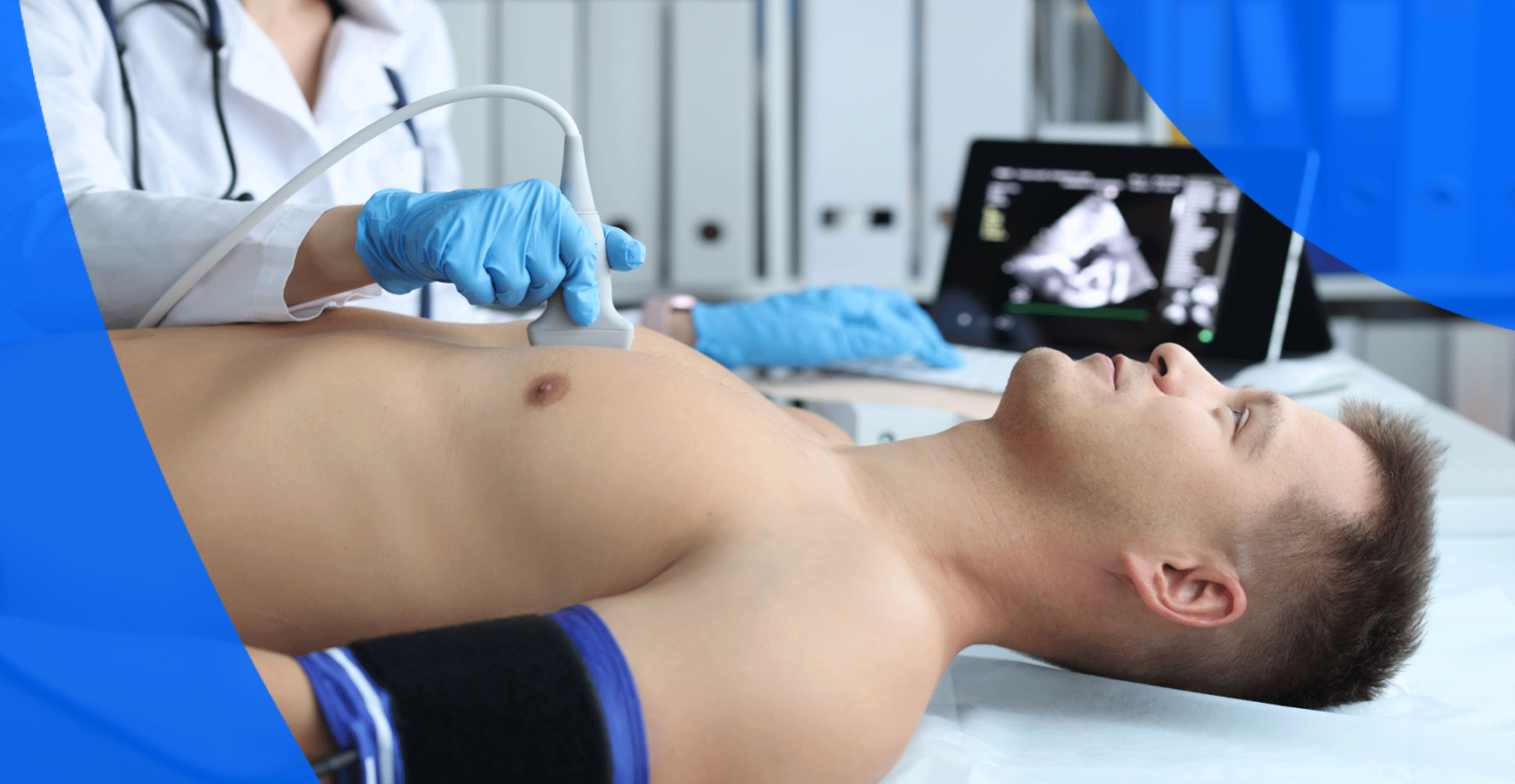Echocardiogram (ECHO) at Sun Diagnostics
Echocardiogram (ECHO) is a non-invasive ultrasound test that uses sound waves to create images of the heart, helping diagnose heart conditions and monitor cardiac function.

Echocardiogram (ECHO) is a non-invasive ultrasound test that uses sound waves to create images of the heart, helping diagnose heart conditions and monitor cardiac function.

An Echocardiogram (ECHO) is a painless, non-invasive ultrasound test that uses high-frequency sound waves to produce detailed images of the heart's structure and function. It helps detect heart valve problems, heart muscle issues, and other cardiac abnormalities.
The test is performed by placing a transducer on the chest, which sends sound waves that bounce off the heart and create images on a monitor. It usually takes 30 to 60 minutes and provides valuable information for diagnosis and treatment planning.
ECHO is commonly used to evaluate symptoms such as chest pain, shortness of breath, and irregular heartbeats, as well as to monitor heart health in patients with known heart conditions.
To ensure accurate and comfortable echocardiogram results, please consider the following tips:
